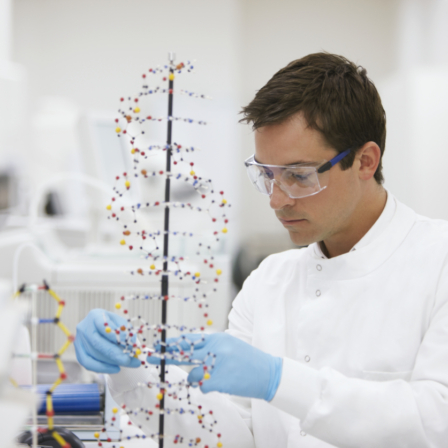Self-conducted health checks online, well-being training and the assessment of symptoms are all examples of smart online services that will be available to an increasing number of Finns in the years to come. The decision on a national online health account will facilitate monitoring one’s own health and boost the development of new self-care services. All the preconditions are now in place for a functional change in health services.
What if you could conduct a health check online instead of queuing for a doctor’s appointment? Or analyse your symptoms via the online service on the basis of medical information and receive a preliminary recommendation for self care or a course of treatment without even leaving your home? This is already a reality in Hämeenlinna, a city of 70,000 residents, where the minunterveyteni.fi service was launched in March. Remote video consultations with a physician and the electronic renewal of prescriptions have in turn been successfully tested by the Finnish Student Health Service (YTHS).
These new health services are part of the virtual clinic model, in which people’s own medical data can be linked to new types of service models and the healthcare system. The target is to expedite access to treatment and save the time of professionals by means of easy-to-use services. Sitra has developed and piloted the operating model in recent years – not just with Hämeenlinna and YTHS, but with Tampere, the South Karelia Social and Health Care District (Eksote), Kuopio, Lahti and Forssa as well.
Self-care solutions should be a part of everyday health services
These positive project experiences should now be harnessed for the benefit of the entire population. The adoption of a service such as Hämeenlinna’s minunterveyteni.fi is currently being planned in some of Finland’s largest cities – Espoo, Helsinki, Tampere, Turku, Oulu and Joensuu – in addition to Eksote. These pioneers in self care are jointly preparing a national self-care service solution in the Self Care and Digital Value Services (ODA) project funded by Sitra, which is about to progress from planning to the implementation phase.
Sitra Specialist Eero Raunio says that the time is ripe for adopting electronic solutions in everyday healthcare practices nationwide: “The technology is there, the clients are ready and even the attitudes of healthcare professionals towards new service models have clearly changed in a positive direction in recent years, along with the good experiences gained.”
There is also increasing evidence that self-care services expedite access to treatment, improve availability and transfer the focus of healthcare from the treatment of illnesses to their prevention. The feedback from clients has been positive in, for example, YTHS’s recent customer satisfaction survey.
“All the preconditions for a major transition now exist, and the change is already under way,” says Raunio.
Now or never
Leading Physician Risto Mäkinen of the City of Helsinki Health Centres confirms that now is the crucial time to reform service operations.
“The ODA project is the first serious co-operation project to create operational practices and service concepts. If the project progresses and the major cities participate, it can generate national and genuinely new service models. If the co-operation fails, all parties will continue to develop their own electronic forms to replace the current paper forms,” Mäkinen says.
Director Pentti Itkonen from Eksote notes that the objective should not just be to transfer old services to new platforms but to create entirely new service models and practices. In this way, a genuinely more efficient service system could be developed that would also contribute to the need to tackle the sustainability gap of the public economy.
“We have again ended up discussing cuts, which indicates that we still haven’t been able to exploit technology to the full. And when the economy recovers, we will return to our old practices. Should we really be making unnecessary investments based on old operational models for the next ten years until we have a generation of decision-makers that understand service innovation?”
Personal medical records to be stored in one place
The expansion of advanced electronic self-care services is supported by the fact that citizens can gather the health and well-being information they have themselves produced in one place – their personal online health account. In the future, this will take place in the My Kanta service produced by Kela, the Social Insurance Institution of Finland, which is being implemented as a unified national solution. According to plans, the service will be in widespread use by 2017. The national service corresponds to the citizens’ online health account (PHR) solution previously proposed by Sitra and is based on the experiences gained from the development of similar services in recent years.
According to Sitra’s Eero Raunio, a single national health account is a significant improvement from the perspective of citizens, healthcare professionals and electronic health-service providers alike.
“Using combined information, we can obtain a much wider knowledge base to support the promotion of well-being and healthcare, both in terms of clients’ self care and for analysis by a professional or an advanced information system. The combined online health account will also act as an innovation platform for service developers to develop more effective and customer-oriented solutions, whilst easing the burden of the technical implementation,” says Raunio.
In the My Kanta pages, citizens can already view the medical records produced by healthcare organisations as well as their electronic prescriptions. The aim is that, in the future, anyone can use their personal health account to save data gathered from, for instance, mobile applications or measuring devices. If they wish, citizens can also allow this information to be used for new kinds of self-care services and by social and healthcare professionals.





Recommended